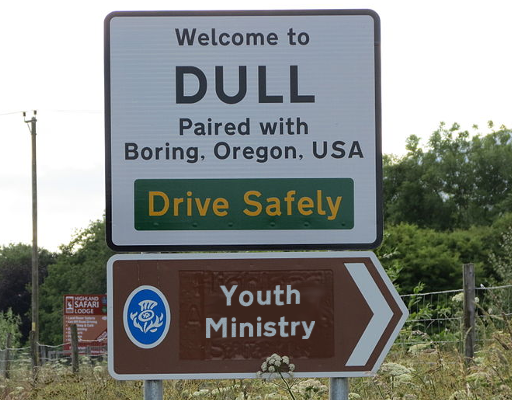A while ago, I described my calling to ordained ministry. I explained how, through prayer and conversation with close friends and a variety of Elis, I gained assurance in that calling – to the point that I have stopped questioning it.
I also explained that I did not have a clear picture of the particulars of my future ministry, and that, at one time, I did struggle with this lack of clarity. Whilst the shape my ministry is to take is not much clearer, though, I have found that I was okay with that.
And so, trusting in my calling to the ministry, I ploughed on. I set my sights on this end goal, and worked towards it. I preached a few sermons. I got involved in a variety of ministries. I picked the liturgy for a service. In short, I’ve been busy. And since I started down this path, I have thought that doing this work was obeying God, because it was pursuing the calling I felt.

Photo: Vladimir Kramer, public domain(Unsplash)
I still think this is true: I still think that it is extremely important to follow my calling, and to do everything that I can to fulfill it. But I fear that, in focusing on this, I have separated my calling from God. It has become “something to achieve”, for the glory of Christ, yes, but first and foremost an end in itself. So I was concentrating on my personal future, at the expense of both my present actions and the greater picture.
It is especially easy to fall into this trap when the vocation we follow is somehow religious. If the calling we pursue is secular (and let me stress here that secular callings are just as worthy as religious callings), then we don’t risk much to mistake it for its source. For better or for worse, the working out of a secular vocation will always be slightly distinct from religious activity, no matter how pervasive our faith is. But if the calling is a calling to a religious role, then it is easy to set the fulfillment of that call as the primary purpose of all our doings – religious and secular. Therefore, focusing on what we are called to rather than on the one who is calling us has particularly far-reaching consequences in the case of religious vocations.
This is why we need discernment, continuously. Even when we think we got it all figured out – what ministry we are called to, and a five-year plan to get there. Not because we necessarily need to further fine-tune this five-year plan, but because of what discernment means: constantly looking to God, and constantly being reminded that He is greater than the vocation we feel called to. Not because we doubt our vocation, but because God is present throughout our calling, not just at its end; and because we cannot reach this end on our own.
Let us not believe that we can sort out our vocation entirely; but let us, instead, turn to and trust in God for everything, including our calling and its fulfillment.



